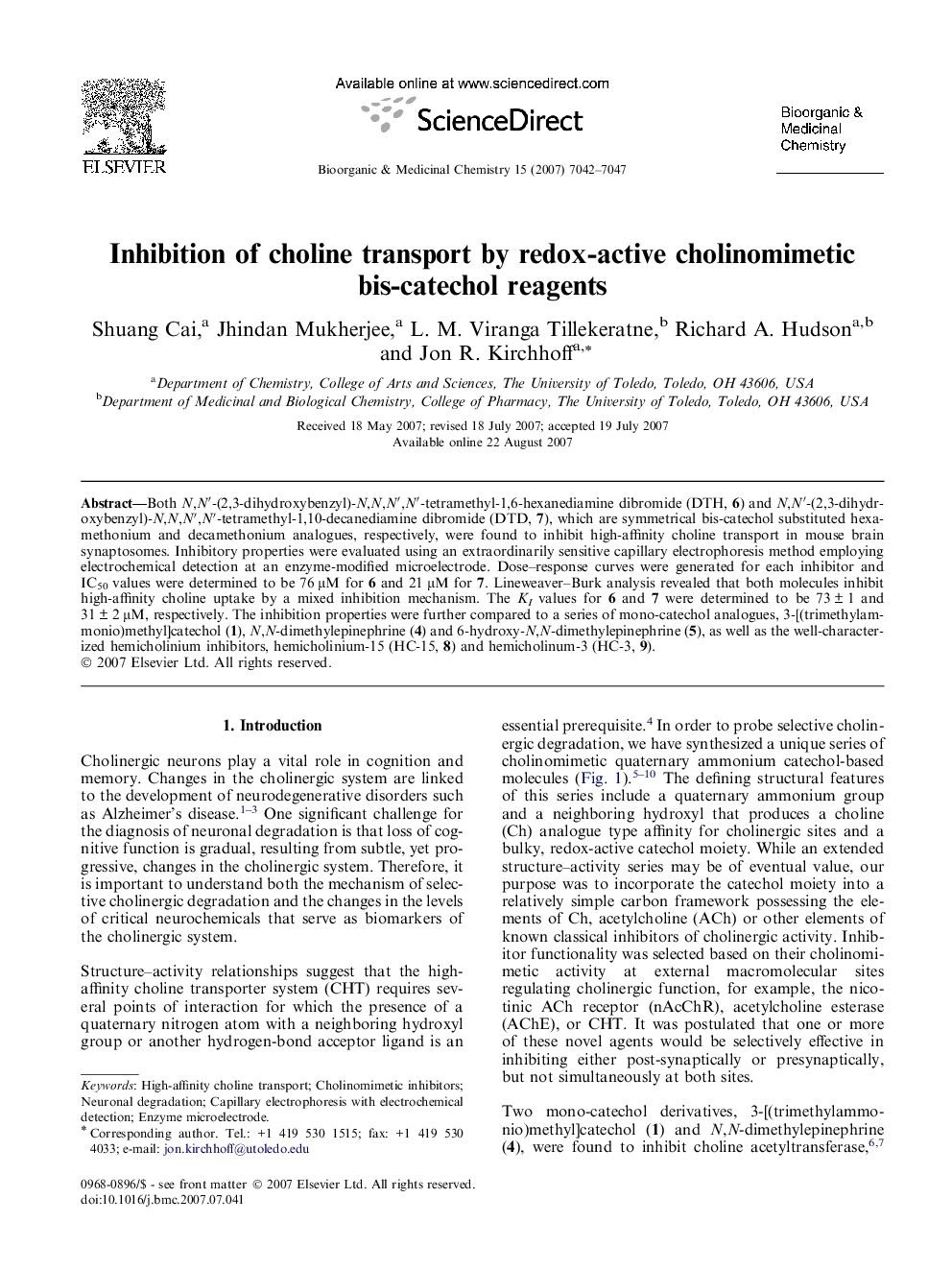| کد مقاله | کد نشریه | سال انتشار | مقاله انگلیسی | نسخه تمام متن |
|---|---|---|---|---|
| 1362367 | 981486 | 2007 | 6 صفحه PDF | دانلود رایگان |

Both N,N′-(2,3-dihydroxybenzyl)-N,N,N′,N′-tetramethyl-1,6-hexanediamine dibromide (DTH, 6) and N,N′-(2,3-dihydroxybenzyl)-N,N,N′,N′-tetramethyl-1,10-decanediamine dibromide (DTD, 7), which are symmetrical bis-catechol substituted hexamethonium and decamethonium analogues, respectively, were found to inhibit high-affinity choline transport in mouse brain synaptosomes. Inhibitory properties were evaluated using an extraordinarily sensitive capillary electrophoresis method employing electrochemical detection at an enzyme-modified microelectrode. Dose–response curves were generated for each inhibitor and IC50 values were determined to be 76 μM for 6 and 21 μM for 7. Lineweaver–Burk analysis revealed that both molecules inhibit high-affinity choline uptake by a mixed inhibition mechanism. The KI values for 6 and 7 were determined to be 73 ± 1 and 31 ± 2 μM, respectively. The inhibition properties were further compared to a series of mono-catechol analogues, 3-[(trimethylammonio)methyl]catechol (1), N,N-dimethylepinephrine (4) and 6-hydroxy-N,N-dimethylepinephrine (5), as well as the well-characterized hemicholinium inhibitors, hemicholinium-15 (HC-15, 8) and hemicholinum-3 (HC-3, 9).
Two symmetrical bis-catechol substituted hexamethonium and decamethonium analogues were found to inhibit high-affinity choline transport in mouse brain synaptosomes. Inhibition parameters were evaluated and compared with known mono-catechol derivatives.Figure optionsDownload as PowerPoint slide
Journal: Bioorganic & Medicinal Chemistry - Volume 15, Issue 22, 15 November 2007, Pages 7042–7047